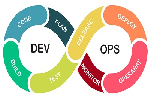Open source Operating Systems
Open Source
'Open Source' Definition
Definition:
The original source code is freely available software and is redistributed and modified according to user requirements.open source software means that the source code or base code is usually available for anyone to modify or improve for reuse and access. open source code is part of software that users don't see much.
Anyone can change and change the software so that the program or application works.
Programmers who have access to computer program source code can improve by adding features to the program or by fixing components that don't always work properly.
Explanation:
- ⇰ There are two types of software. One is open source software, the other is proprietary software or closed source software. Since anyone can edit the source code of an open source program without a license, it is also free to download.
- ⇰
Terms of use are often defined by the general public license, which serves as a software license agreement (SLA) for most open source programs.
- ⇰
Many people prefer open source software because they are interested in more control over these types of software.
- ⇰
They can look at the code to make sure they don't do anything they don't want to do, and only change the parts they don't want to do.
- ⇰
Terms of use are often defined by the general public license, which serves as a software license agreement (SLA) for most open source programs.
- ⇰
Many people prefer open source software because they are interested in more control over these types of software. They can inspect the code and do only what they don't want it to do.
- ⇰
Even non-programmers can benefit from open source software, as they can use this type of software for any purpose without any prior notice to the owner as they wish — not as one would think.
- ⇰
This is a common misconception about what open source activity is. Usually programmers do not charge for the open source software they create or they contribute.
- ⇰ Many open source software programmers have found that it is more profitable for users to pay for software services and support than for software. In this way, their software is free and they make money by helping others to install, use and troubleshoot it.
Why do people prefer using open source software? People prefer open source software to proprietary software for a number of reasons, including:
Control.
Many people prefer open source software because they have more control over that kind of software. They can examine the code to make sure it's not doing anything they don't want it to do, and they can change parts of it they don't like. Users who aren't programmers also benefit from open source software, because they can use this software for any purpose they wish—not merely the way someone else thinks they should.
Training.
Other people like open source software because it helps them become better programmers. Because open source code is publicly accessible, students can easily study it as they learn to make better software. Students can also share their work with others, inviting comment and critique, as they develop their skills. When people discover mistakes in programs' source code, they can share those mistakes with others to help them avoid making those same mistakes themselves.
Security.
Some people prefer open source software because they consider it more secure and stable than proprietary software. Because anyone can view and modify open source software, someone might spot and correct errors or omissions that a program's original authors might have missed. And because so many programmers can work on a piece of open source software without asking for permission from original authors, they can fix, update, and upgrade open source software more quickly than they can proprietary software.
Stability.
Many users prefer open source software to proprietary software for important, long-term projects. Because programmers publicly distribute the source code for open source software, users relying on that software for critical tasks can be sure their tools won't disappear or fall into disrepair if their original creators stop working on them. Additionally, open source software tends to both incorporate and operate according to open standards.
Community.
open source software often inspires a community of users and developers to form around it. That's not unique to open source; many popular applications are the subject of meetups and user groups. But in the case of open source, the community isn't just a fanbase that buys in (emotionally or financially) to an elite user group; it's the people who produce, test, use, promote, and ultimately affect the software they love.
The DevOps seminar will help you to learn DevOps from scracth to deep knowledge of various DevOps tools such as fallowing List.
Kubernetes.Learn Latest Technologies

DevOps

AWS

Python

Azure

G Cloud

Linux

Web Tech

Data Bases

Testing

Git

Ansible

Chef

Kubernetes

HTML

CSS

